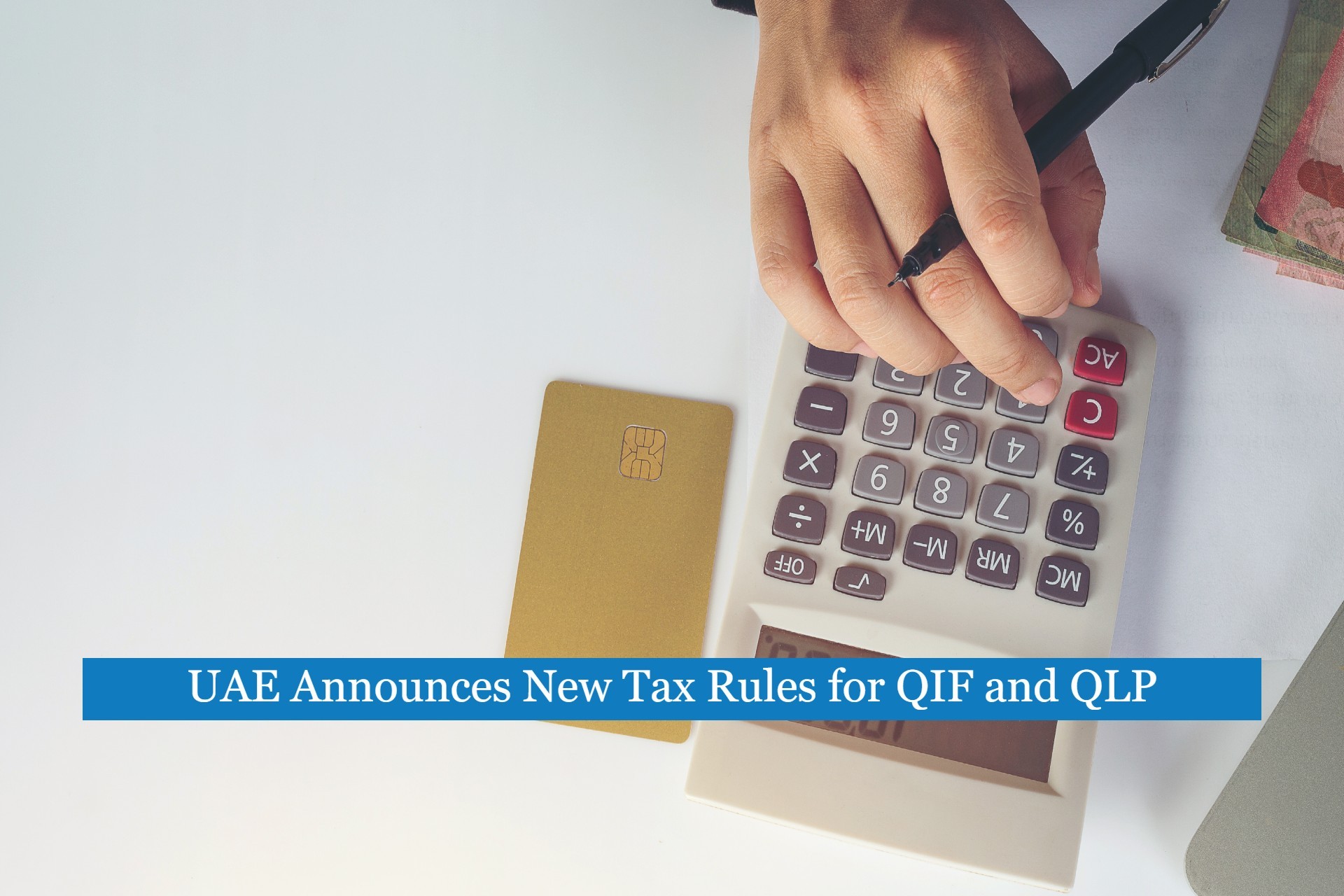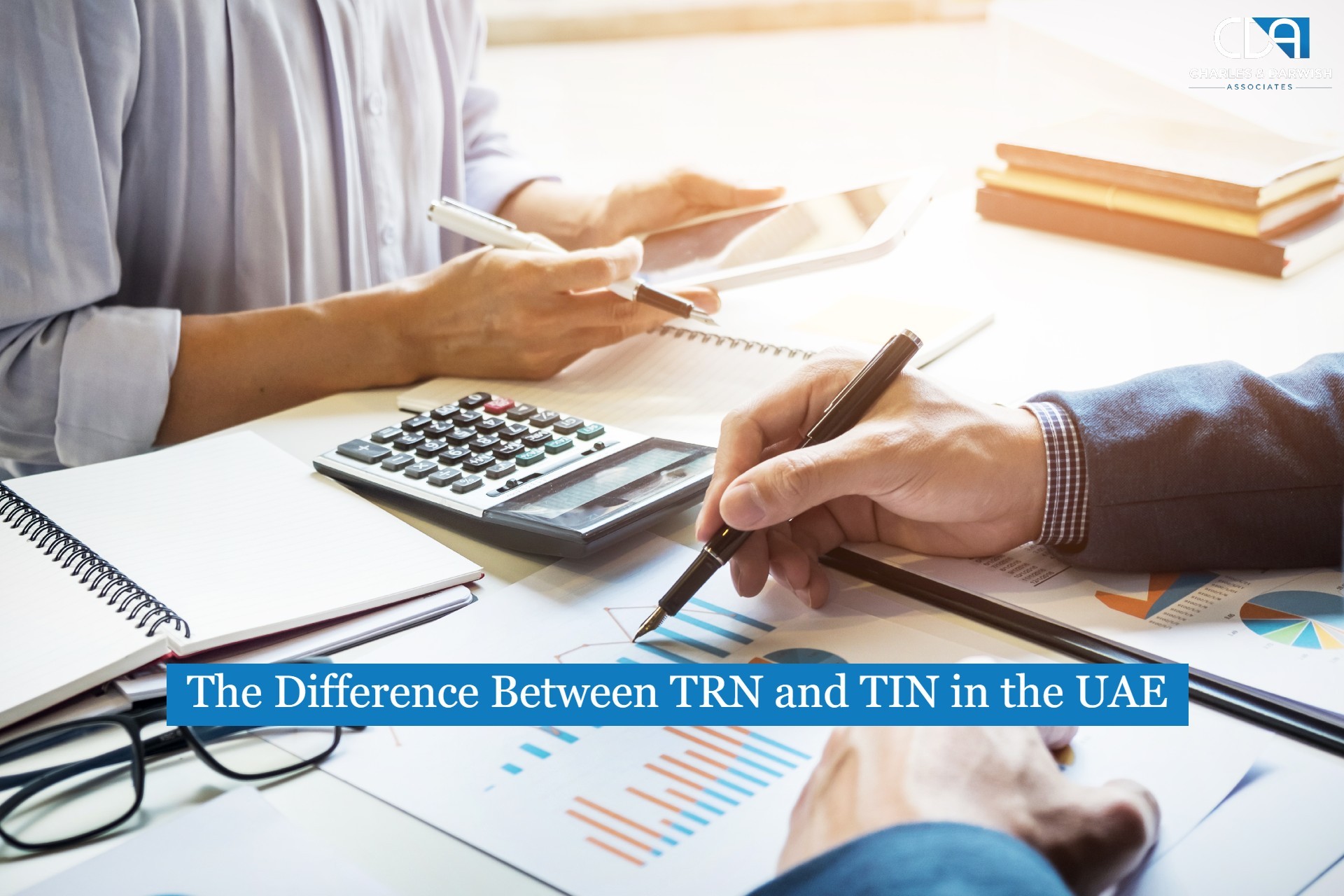UAE Announces New Tax Rules for QIF and QLP
When I first heard about the UAE’s announcement of new tax rules for Qualified Investment Funds (QIFs) and Qualifying Limited Partnership (QLPs), my phone did not stop ringing. Clients, colleagues, and even friends in the industry wanted to know what this meant for them. And honestly, I get it. Tax updates are interesting, particularly when they offer flexibility and added benefits along with more transparency.
Let me walk you through what has changed, why it matters, and how it could affect you.
First, Let's Understand What a QIF or QLP Is
A QIF can be considered as a sizable asset pool. It's a tool for investors to combine their funds. A qualified and licensed investment manager is in charge of overseeing this fund.
A Qualifying Limited Partnership (QLP) is a particular type of legal structure, very much like a conventional limited partnership. It gives investors (the limited partners) a shield against liability beyond their investment.
Why Does the New Cabinet Decision Matter?
The UAE introduced Corporate Tax in 2023, and during that time, the government made it clear that even though taxes would be applied, some businesses would still be exempt, which will help maintain competitiveness and promote social welfare.
The new rules for QIFs and QLPs are a continuation of that promise. They bring clarity and transparency, giving investors and partners a path to exemption.
Old Decision vs New Decision
| Cabinet Decision No. 81 (2023) | Cabinet Decision No. 34 (2025) | |
| Friendly Tax Treatment | There was no specific limit defined, and a breach of the 10% real estate asset threshold was likely considered a failure to meet QIF conditions. | Investors who receive income from a QIF will be exempt from UAE CT on that income as long as they do not violate the diversity of ownership criterion or the real estate asset threshold of 10%. |
| Enhanced Operational Flexibility | Previously, a QIF may completely lose its tax-exempt status in case of violated ownership regulations (for instance, if one investor acquired an excessive stake). | The new rules grant QIFs a grace period even after the first 2 years of establishment. As long as the violations don't total more than 90 days in a year or take place during the fund's liquidation, investors can correct all violations during this grace period. |
| Appropriate Accountability | Violations committed by even one investor had the potential to disqualify the fund as a whole. | If the applicable exemption conditions are satisfied, any violations of the diversity of ownership rules will only affect the responsible investors who committed the violation and will not disqualify the fund as a whole as a QIF. |
| Ease of Administration Process for Foreign Investors | Foreign juridical investors faced the same registration and potential taxable presence rules as other non-residents. | Foreign juridical investors in REITs and QIFs (who satisfy the necessary requirements) that distribute 80% or more of their revenue within nine months of the fiscal year-end are only required to register for UAE CT on the day of dividend distribution. |
| Tax Transparency for Limited Partnerships | According to the initial rules, there was no tax transparency for limited partnerships. | The new decision introduces a new provision which would allow certain limited partnerships to qualify for and be treated as tax-transparent entity, provided that they meet the necessary conditions. |
Specific Highlights for Qualifying Investment Funds (QIFs)
Based on the new rules issued for the QIFs, the exemptions under the UAE corporate tax regime can be enjoyed only if the specific conditions are met, which would mainly include:
- The QIF must ensure that the 10% real estate threshold is not breached.
- The QIF will be required to maintain the diversified ownership structure where the investment would be spread and would also promote the participation of more investors.
These are some of the major compliance requirements, which, if met, would enable the QIFs to enjoy the exemptions under the CT.
Specific Highlights for Qualifying Limited Partnerships (QLPs)
The new rule also includes certain provisions for the QLPs, where it provides for certain QLPs to be treated as tax-transparent entities subject to certain conditions, which would mainly include the following:
- The partners must agree on the transparent treatment.
- The partnership must not have any legal personality.
- The income must not be taxed at the partnership level and must be directly allocated to them.
These are the major conditions which is to be met to get the tax-transparent treatment.
A Step Towards Transparency
What I appreciate most about these updates is that the government has established clear guidelines rather than leaving organizations and investors in the dark. This helps not only in planning but also in building trust. Click here to have more detailed insights about the updated rules on QIFs and QLPs issued by the authorities: Ministry of Finance Announces the issuance of a Cabinet Decision on Qualifying Investment Funds and Qualifying Limited Partnerships for the Purposes of Corporate Tax Law - Ministry of Finance - United Arab Emirates
So, now is the time to examine your structure and determine whether you meet the requirements for exempt status if you are managing or investing in a fund. For public benefit organizations, keep an eye on the updated Ministry of Finance list and make sure your activities align with the qualifying criteria.
Explore More With CDA
Get more detailed insights about the corporate tax and VAT regime implementation in your businesses in Dubai with the expert assistance from CDA. The professional team of CDA will enable you to stay updated on the tax regimes and updates and will also ensure your compliance with the prevailing tax frameworks. The tax team at CDA is always on standby to provide you with the best tax assistance and services. For more information about our services, connect with our team today!

Mitesh Maithia
Tax Manager
Mitesh is a Tax Professional with expertise in direct, indirect, and international taxation, including transfer pricing, since 2018. Passionate about making complex tax matters simple, he shares insights to help businesses stay compliant and forward-looking.













